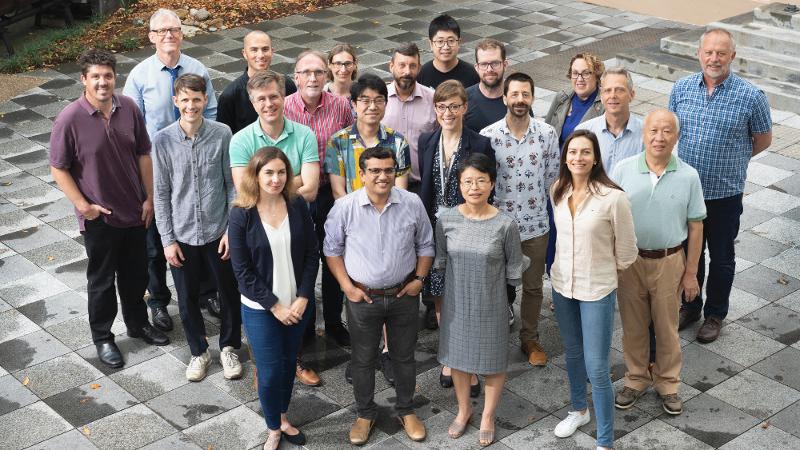
QUT is celebrating the success of 17 research teams who have received more than $7 million in ARC Discovery Projects grants.
QUT is celebrating the success of 17 research teams who have received more than $7 million in ARC Discovery Projects grants.
Senior Deputy Vice-Chancellor and Vice-President (Research) Professor Christopher Barner-Kowollik said QUT was tied in eighth position nationally in terms of the number of new grants awarded, which was an admirable result.
“The projects cover a wide range of disciplines and research areas, but a common theme is that they are targeting innovative solutions to addressing real-world problems,” Professor Barner-Kowollik said.
They are:
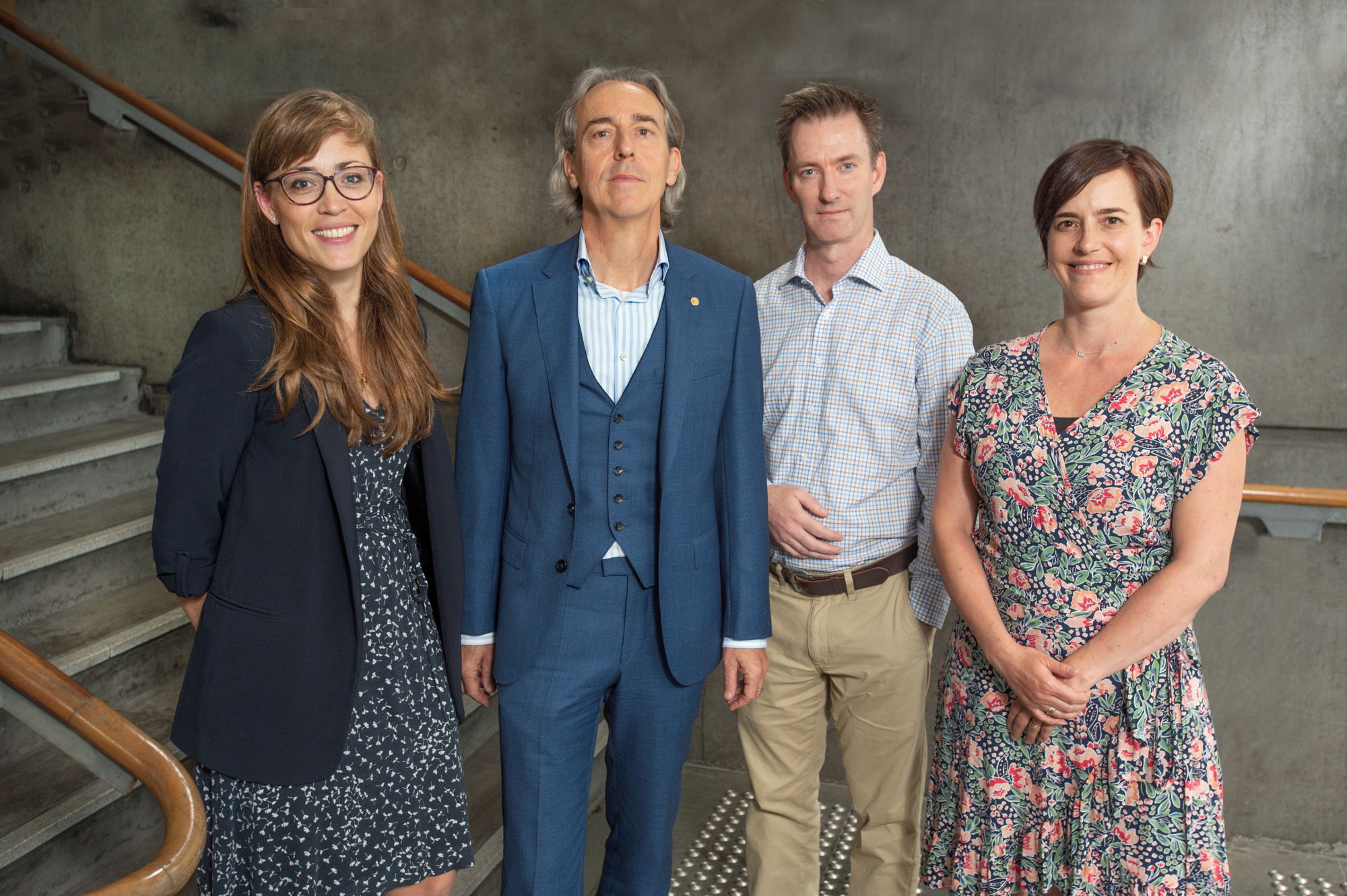
An international team of researchers has received $449,148 for the project The material science of biomimetic soft network composites.
The project, led by Distinguished Professor Dietmar W Hutmacher, will design, additive manufacture and characterise advanced biomimetic, fibre-reinforced soft network composites based on the architecture of natural soft tissues, using 3D printing by using the inhouse-developed melt electrowriting technology platform.
“Soft materials are replacing rigid engineering materials in many fields including tissue engineering, stretchable electronics and sensors, implantable medical devices as well as soft robotics,” Professor Hutmacher, who is also the director of the first Max Planck Centre in Australia, said.
The team comprises Professor Hutmacher, Dr Marie-Luise Wille, Professor Timothy Dargaville and Dr Nathalie Bock from the Max Planck Queensland Centre at QUT and Professor Dr Alessandro Reali, (University of Pavia, Italy), Associate Professor Paul Dalton (University of Oregon, US) and Professor Ali Khademhosseini (Terasaki Institute, US).
Researchers from QUT and the University of South Australia have received $415,380 for the project Light-powered materials for producing chemical fuels.
Professor Jingsan Xu, an investigator with QUT’s Centre for Materials Science, said the project aims to develop a hybrid, solar-powered catalytic material for the manufacture of liquid hydrocarbon chemicals, without consuming external heating.
“To respond to the energy crisis and worsening global climate change caused by the consistent combustion of fossil fuels, we are working to develop a fully solar-powered material system to convert CO and H2 into high value-added, liquid hydrocarbon fuels. Expected outcomes include low-cost and efficient materials for solar-to-fuel conversion, which will provide benefits to low-carbon living, new clean energy resources and environmental protections,” said Professor Xu.
The team comprises QUT researcher Professor Jingsan Xu and Dr Xuan Wu (University of South Australia).
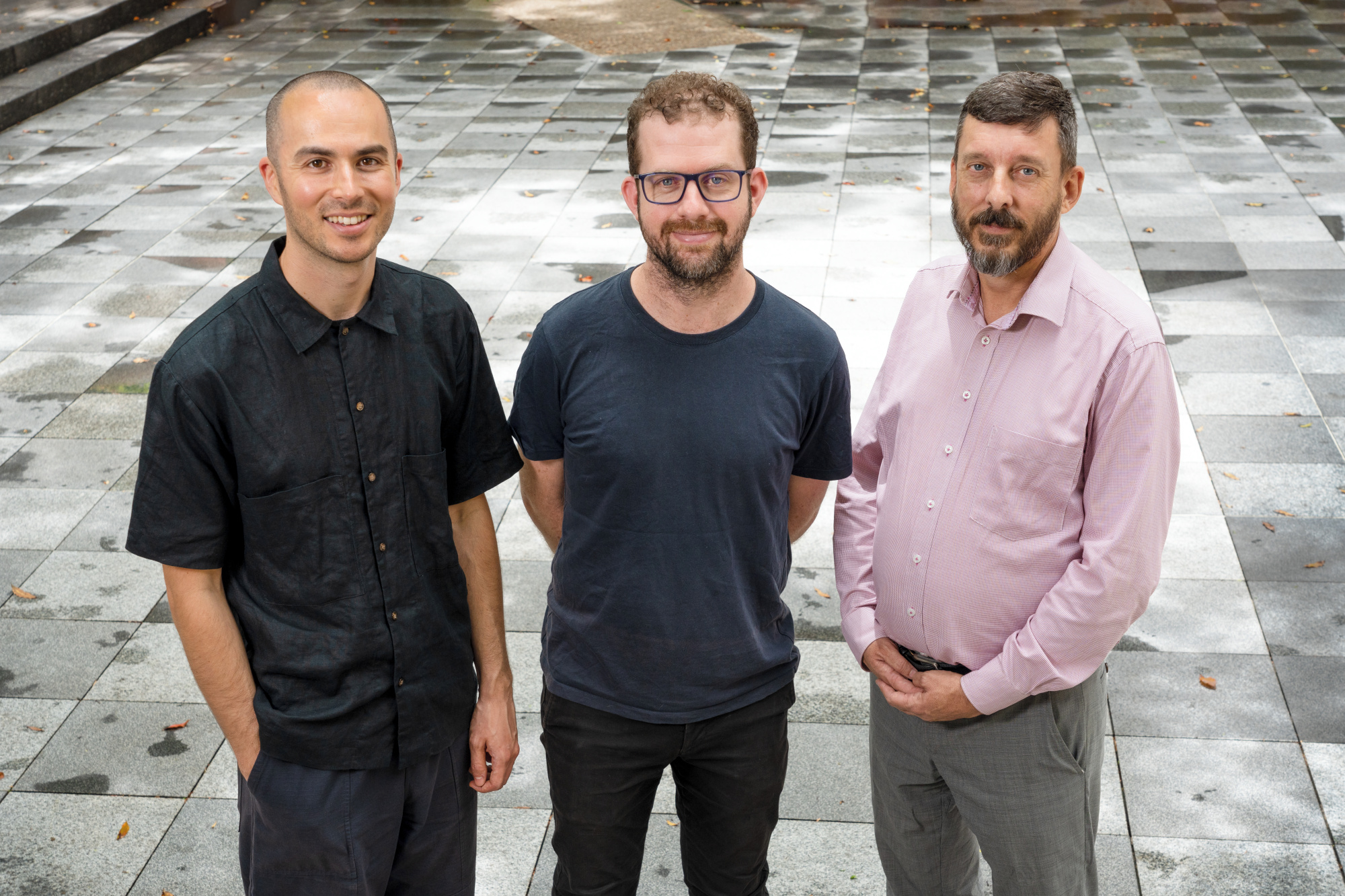
A team of QUT Digital Media Research Centre researchers has received $177,638 for the project Artistic practice in Australian videogame development.
Led by Dr Brendan Keogh, the project aims to show how game development has contributed to creative expression, cultural identity, and economic growth, as well as develop and disseminate practical resources to better integrate knowledge of Australian artist-gamemaking into policy considerations, institutional frameworks, and public awareness
“The game industry is the largest cultural industry in the world, but policymakers and researchers struggle to account for the cultural contexts and creative origins of game development. Our aim is to provide a comprehensive picture of how Australian game developers sit at the nexus of artistic practice and commercial production,” Dr Keogh said.
The team comprises QUT researchers Dr Brendan Keogh, Dr Benjamin Nicoll, Associate Professor John Banks, Associate Professor Dan Golding (Swinburne University of Technology), and Dr Helen Stuckey (RMIT).
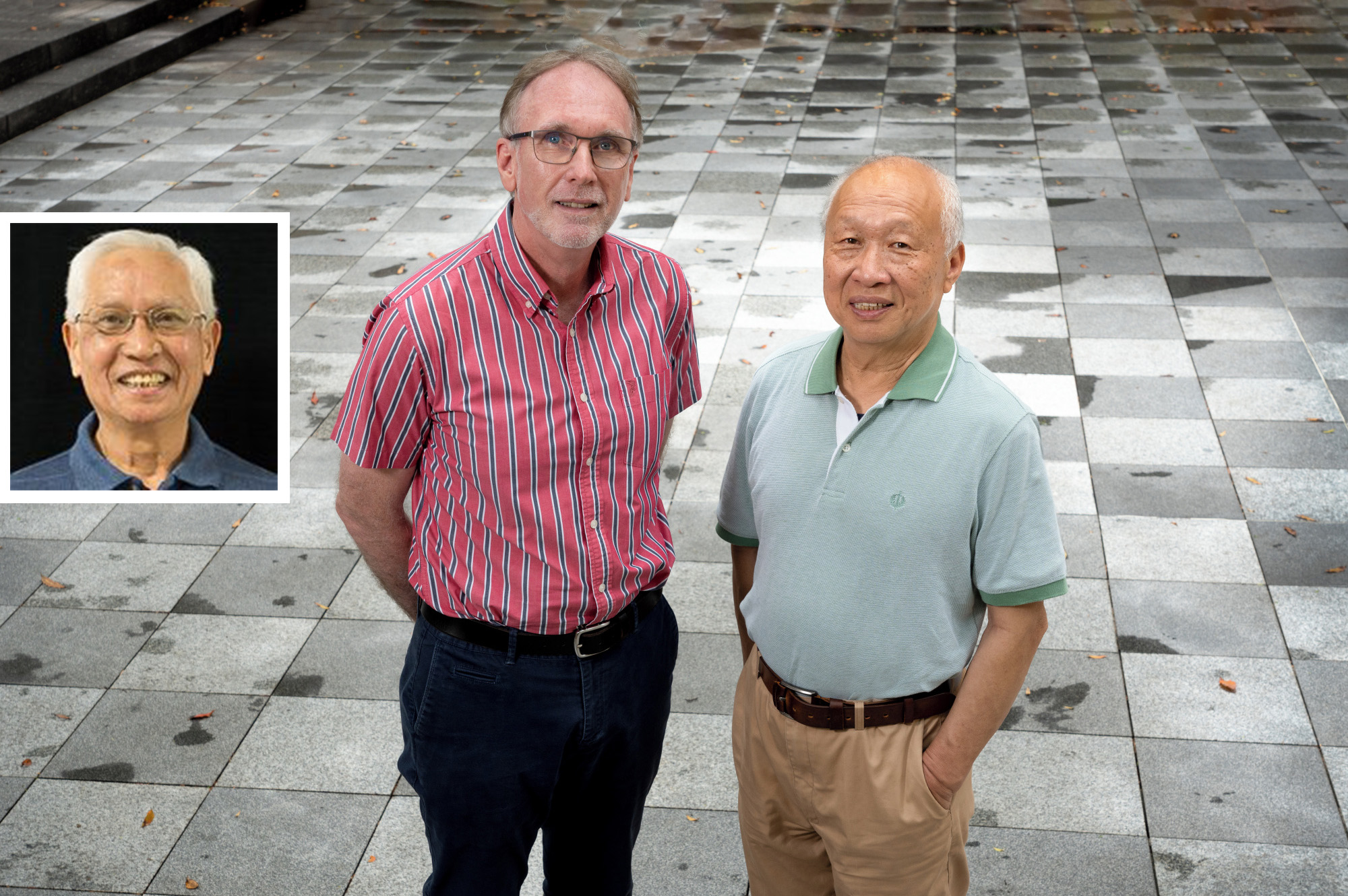
A project to advance the field of nanofluid science and potentially lead to significant thermal engineering applications has been awarded $373,000.
The project, Computational modelling of nanofluids for industrial applications, is led by Professor Fawang Liu, and comprises Professor Ian Turner, Professor Vo Anh - all from QUT, Professor Xiaoyun Jiang (Shandong University, China) and Professor Liancun Zheng (University of Science and Technology, Beijing).
Nanofluids have enhanced thermal properties making them attractive as new working fluids in many emerging applications involving radiators, heat exchangers, electronic devices and heat sinks and have also been used in water desalination and biomedical technology.
“Many challenges in the application of nanofluids still exist and so our aim is to provide a fundamental understanding of the underlying physics of nanofluids through modelling, simulation and experimentation,” Professor Liu said.
A team of QUT researchers has received $478,000 for the project, Transforming Australian bio-based industries through multiscale modelling.
Led by Professor Ian Turner the team will develop a multiscale modelling framework to tackle the key challenge in converting agricultural and forestry biomass into feedstocks suitable for synthetic biology processes that enable the production of biofuels and biomaterials. This challenge concerns the resistance to conversion of the complex biomass microstructure, which makes pre-treatment crucial for enhancing process efficiency.
“We will use micro-CT imaging for particle characterisation and identification of changes in the fibre composition during pre-treatment to create a virtual biomass particle model for an in-silico investigation of the optimal process design. This will transform the way biomass is processed and contribute to the growth of Australia’s bio-manufacturing industry,” Professor Turner said.
The research team comprises Professor Turner, Dr Marie-Luise Wille (Max Planck Centre), Dr Elliot Carr and Professor Ian O’Hara.
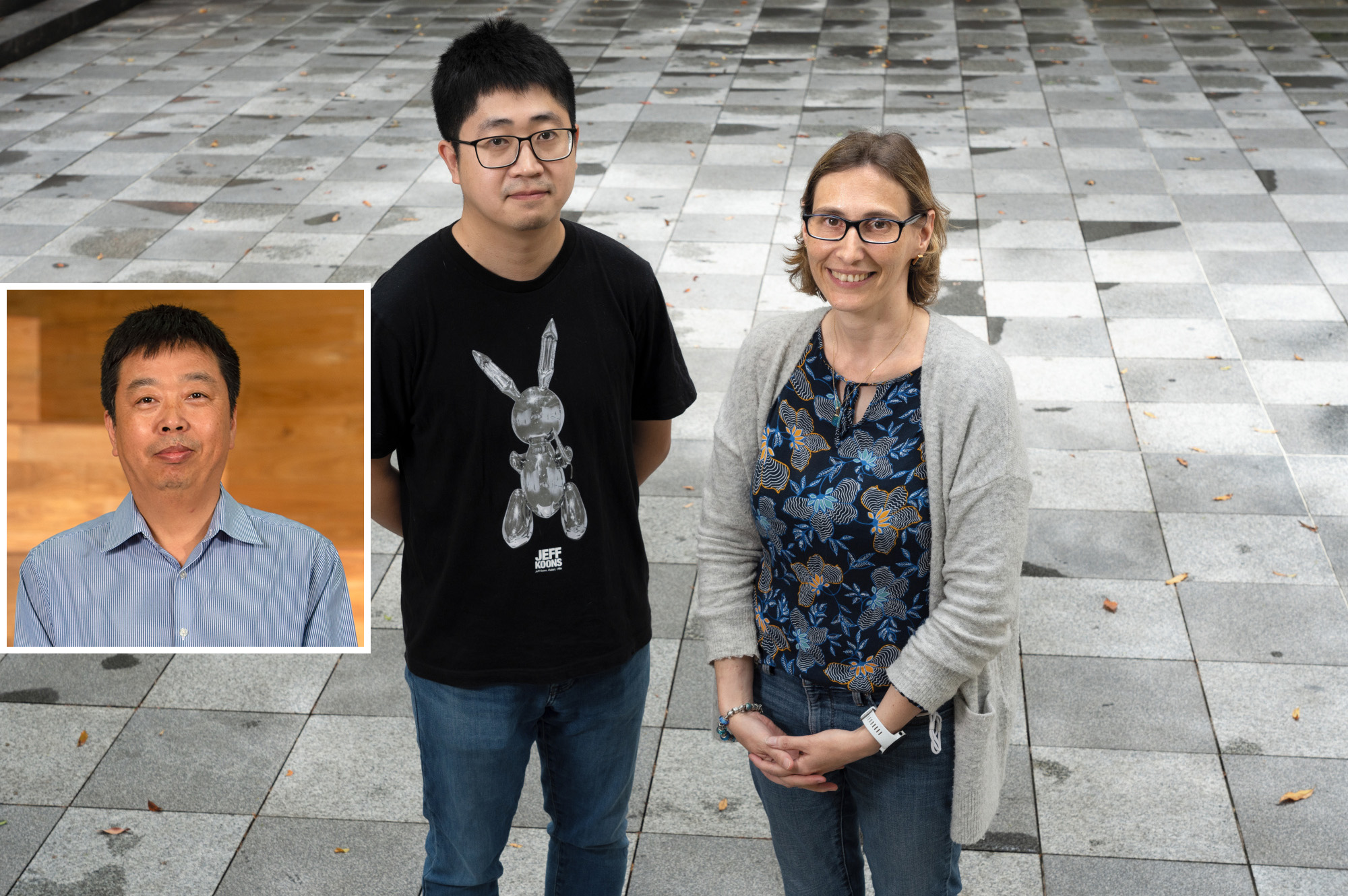
A research team, involving Australian and French universities, has received $487,684 for the project Novel framework for optimising battery-cooling microchannel heat exchangers.
The project, led by Professor Emilie Sauret, will use a novel technique to examine the issue of overheating batteries, used in green energy storage and electric vehicles.
“Thermal overheating can affect the capacity, safety and life expectancy of batteries for renewable energy storage and electric vehicles,” Professor Sauret said.
“Microscale heat exchangers are a potential high-efficiency, low-bulk solution. This project aims to develop a new computational method to design heat exchangers that could contribute to increased adoption of renewable energy technologies.”
The research team comprises of QUT researchers Professor Sauret, Professor Yuantong Gu, Dr Zhongzheng Wang; and Associate Professor Yixiang Gan (University of Sydney) and Dr Didier Lucor (University of Paris-Saclay).
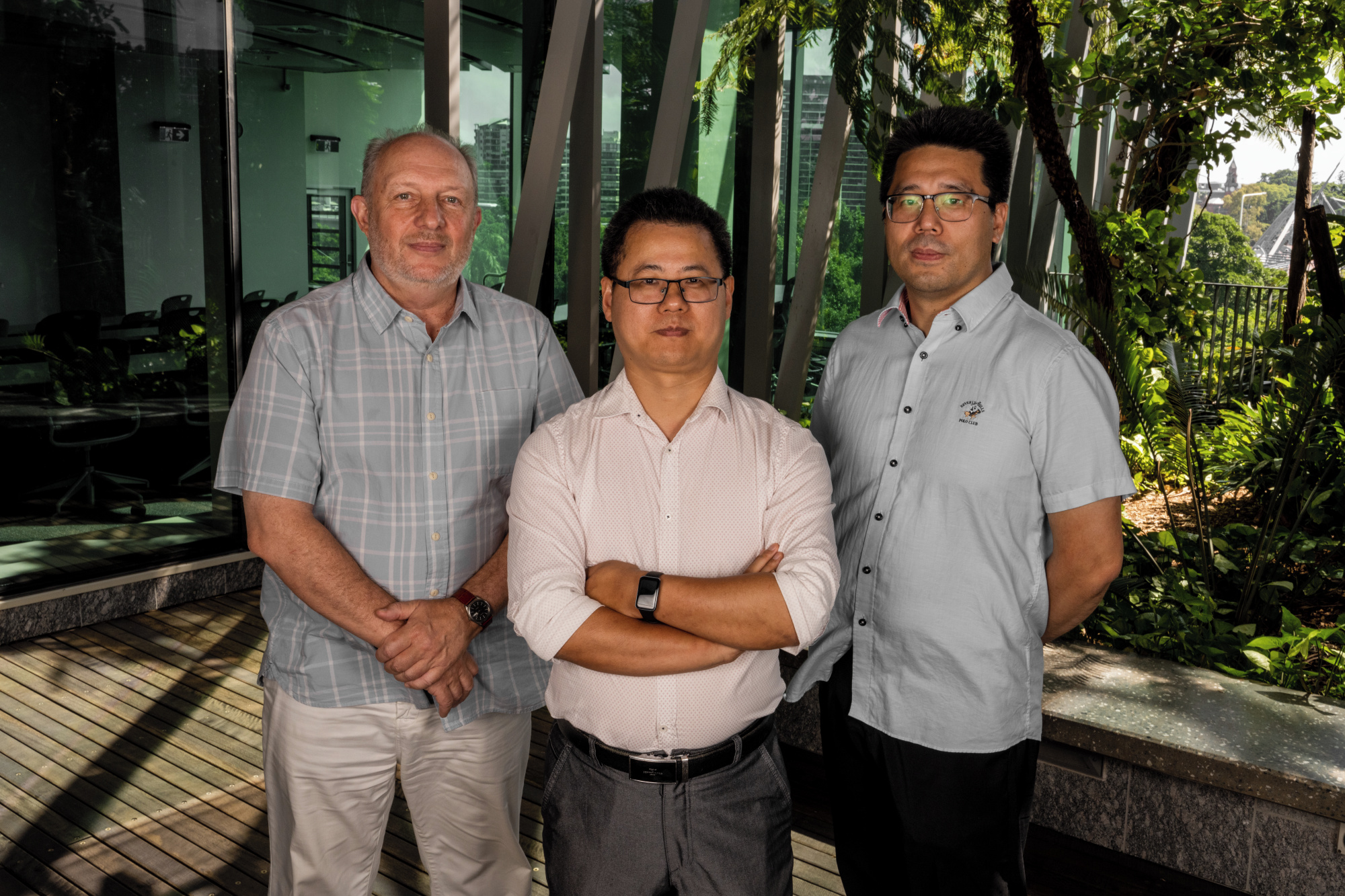
QUT Centre for Materials Science researchers have received $470,000 for the project 2D Multiferroics: from materials design to device conceptualization.
The project, led by Associate Professor Liangzhi Kou, aims to design two-dimensional transistors which would be highly efficient for storage applications.
“Controlling magnetism via electric fields, instead of the usually used magnetic fields, has long been envisioned as a revolutionary technology to achieve higher energy efficiency and ultimately enable devices to be miniaturized even further,” Associate Professor Kou said.
“But there are some major challenges that need to be overcome first and this project aims to develop an innovative solution to meet those challenges.”
The research team comprises QUT researchers Associate Professor Kou, Associate Professor Dongchen Qi, Professor Dmitri Golberg and Professor Dr Arkady Krasheninnikov (Helmholtz-Zentrum Dresden-Rossendorf).
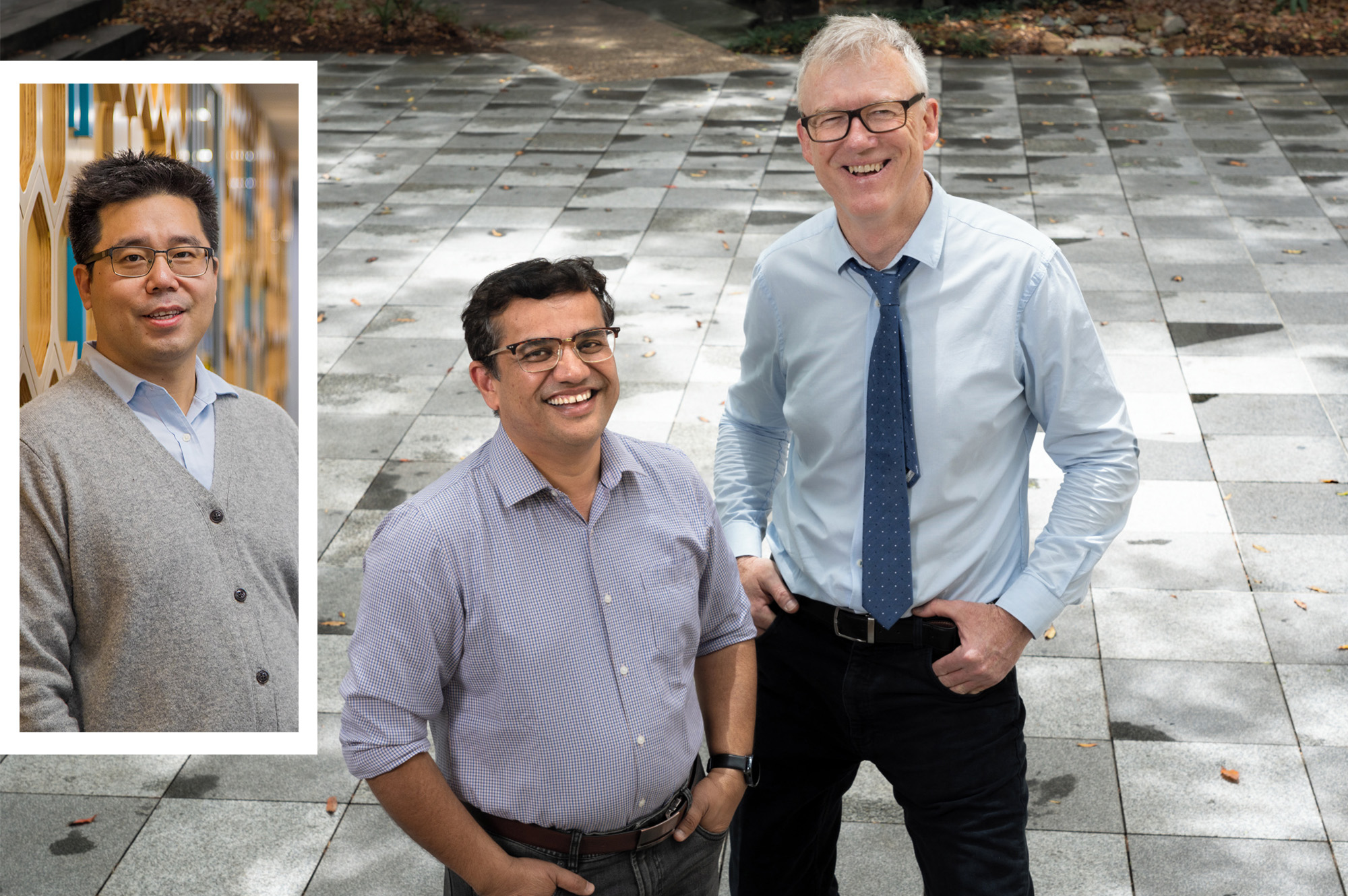
An international research team, including researchers from QUT’s Centre for Materials Science, has received $520,000 for the project Innovative stable free radical-substituted conjugated electronic polymers.
The project, led by Professor Prashant Sonar, aims to develop an innovative type of electronic polymers which could have a range of uses in future nanoelectronic devices needed for advanced flexible-printed electronics, energy, health, internet of things, and sensing.
“We are targeting unique optoelectronic material that have not been properly developed before and we would like to tackle both fundamental and applied research aspects,” Professor Sonar said.
“By developing a fundamental understanding of properties of these materials and their potential device applications, we aim to open up a new field of research in advanced optoelectronic technology.”
The research team comprises of QUT researchers Professor Sonar, Associate Professor Dongchen Qi, Professor Steven Bottle and Associate Professor Emanuele Orgiu (INRS).
An international team of researchers has received $350,000 for the project 2D oxide-supported single-atom catalysts for sustainable fuel generation.
Led by Associate Professor Ting Liao, an investigator with QUT’s Centre for Materials Science, the project aims to meet the knowledge gap between advanced materials and practical sustainable energy technologies, and contribute to the development of sustainable society in Australia and the international community by supplying low-cost and green fuels.
“Rising global energy demands, depletion of fossil fuel reserves, and environmental pollution problems demand sustainable fuel generation for green water splitting, carbon dioxide reduction, water-gas shift reactions, and more. This project aims to develop two-dimensional, oxide-supported, single-atom catalysts for sustainable fuel generation from water and CO2 using combined theoretical and experimental investigations,” Professor Liao said.
The team comprises QUT researchers Associate Professor Ting Liao, and Dr Jun Mei, and Professor Jie Tang (National Institute of Materials Science, Japan).

A biomedical sciences team has been awarded $397,000 for the project Understanding bone structure evolution using machine learning.
Led by Professor Peter Pivonka, the team will investigate the ancient process of bone remodelling with the aim of establishing structural-functional links between remodelling and bone material optimisation to provide significant benefits for bone tissue engineering, fracture healing and improved osteoporosis therapies.
“One in three women and one in five men over 50 will suffer from an osteoporotic fracture. Our research may lead to development of new osteoporosis drug therapies, where knowing the precise interaction of drugs with the remodelling process will help optimise mechanical properties, and so reduce the risk of fracture,” Professor Pivonka said.
The team comprises Professor Pivonka, Dr Maria Antico, both from QUT and Professor David Cooper, (University of Saskatchewan, Canada).
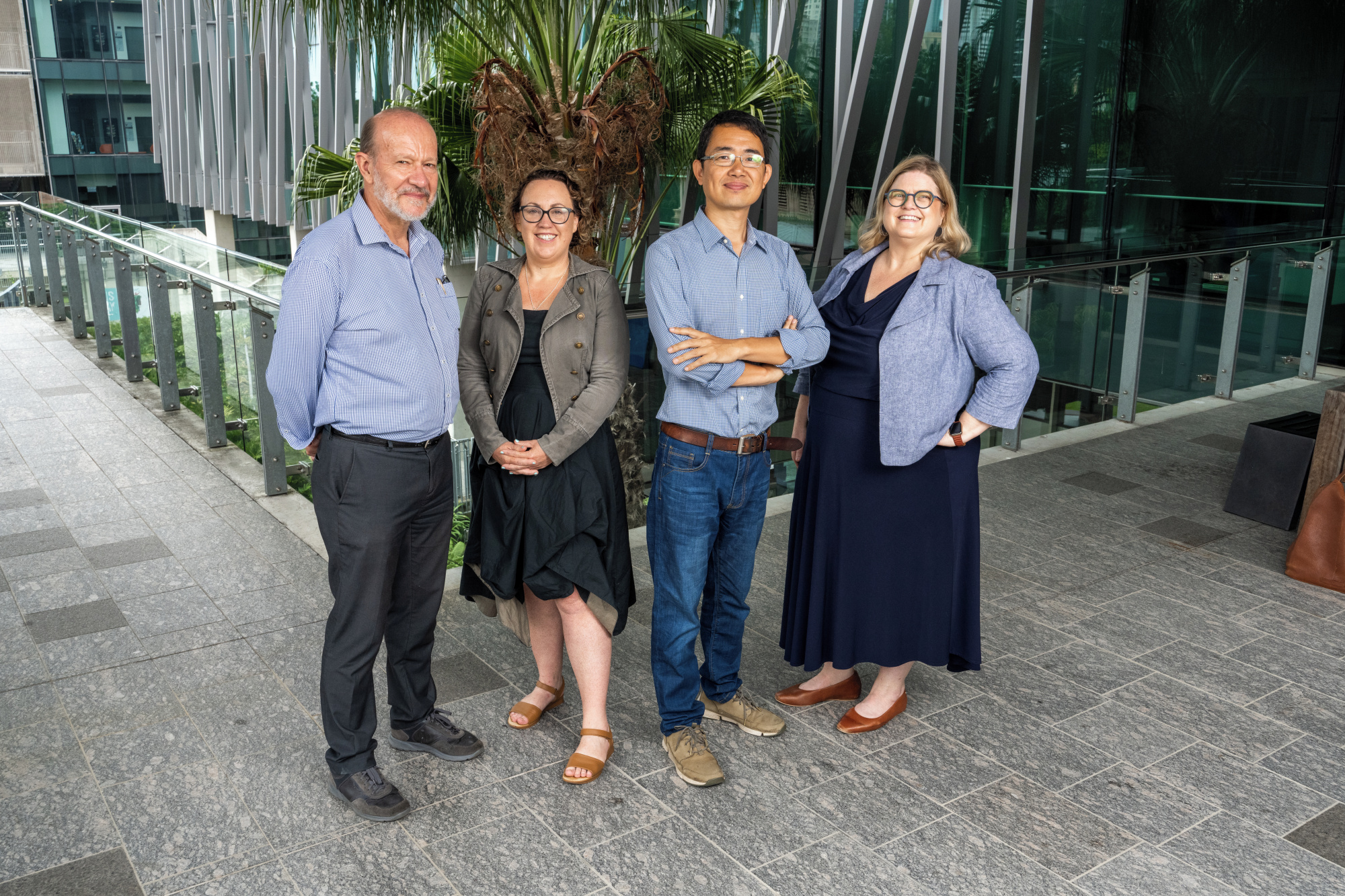
A team of researchers has received $345,483 for the project Building a better built environment for older Australians’ ageing-in-place.
Led by Associate Professor Bo Xia, the project aims to understand how the built environment as a comprehensive system supports (or hinders) their ageing-in-place given that the existing Australian built environment fails to meet older Australians' requirements for independent living.
“Most older Australians want to live independently in their own homes within their familiar community as long as possible. We hope to generate new knowledge in the area of ageing-friendly communities and determine how housing and neighbourhoods affect independent living, as well as create guidelines to improve the built environment design for people ageing-in-place,” Professor Xia said.
The team comprises QUT researchers Associate Professor Xia, Professor Robin Drogemuller (Centre for Data Science), Associate Professor Lindy Burton, Dr Kirsty Volz, and Professor Laurie Buys (Australian Catholic University).
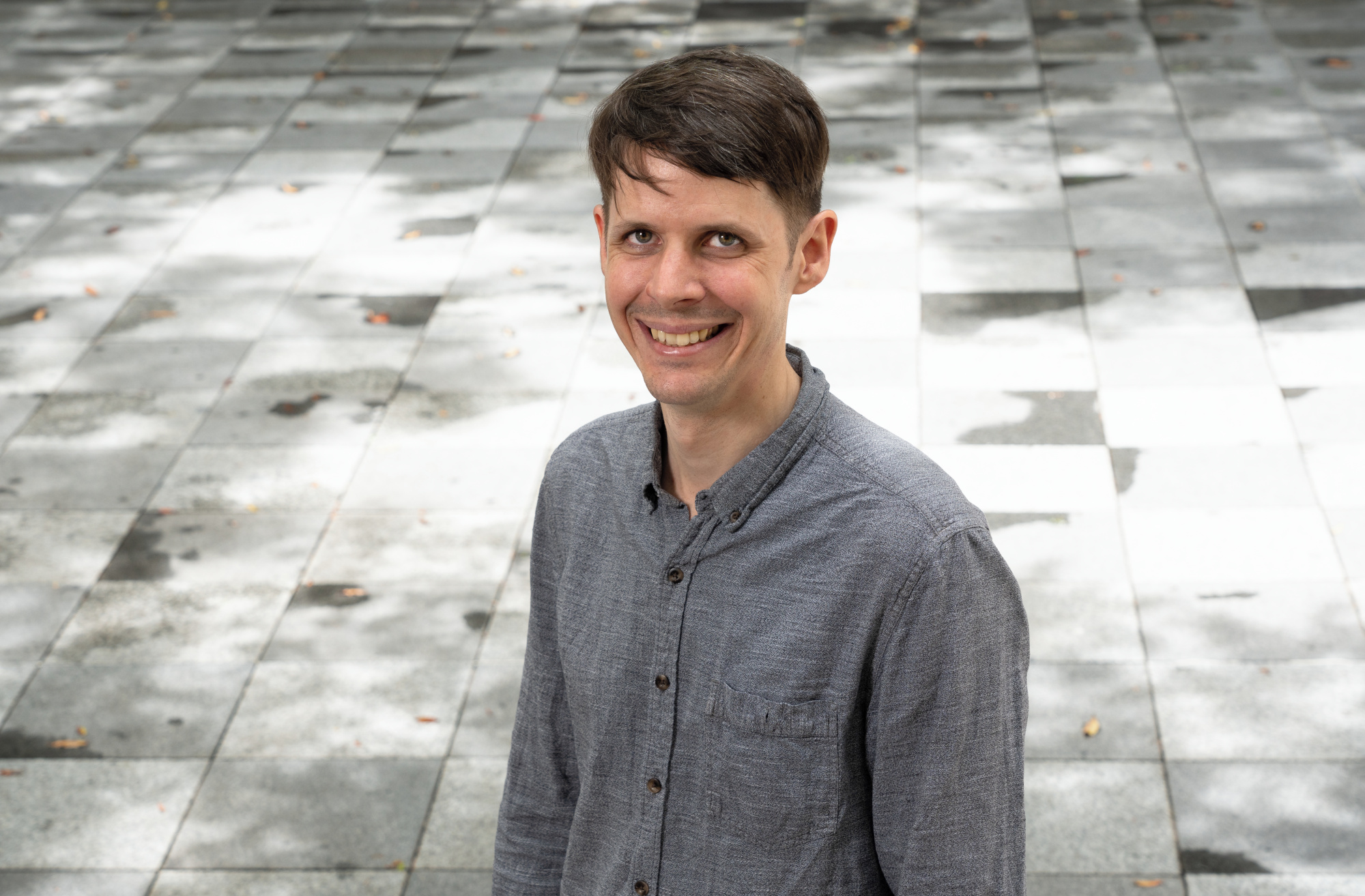
An international team of scientists has received $374,079 for their project, Global integration of microbial community and climate data.
Led by Dr Ben Woodcroft, from the Centre for Microbiome Research, the multidisciplinary team will link climate data to microbial communities across Earth. Understanding how environmental change affects microorganisms will inform the next generation of climate models and better predict our future climate.
“Microorganisms play important roles in controlling the planet’s climate, biogeochemical cycles and our health. Improved understanding of the functioning of microbial communities will aid in discerning the mechanisms responsive to climate change – both those that exacerbate it and those that slow its progress,” Dr Woodcroft said.
The team comprises QUT’s Dr Woodcroft, Dr McKenzie Kuhn (University of New Hampshire, US),Dr Dr Gergely Szollosi (Eotvos Lorand University, Hungary), and Associate Professor Tom Williams (University of Bristol, UK).
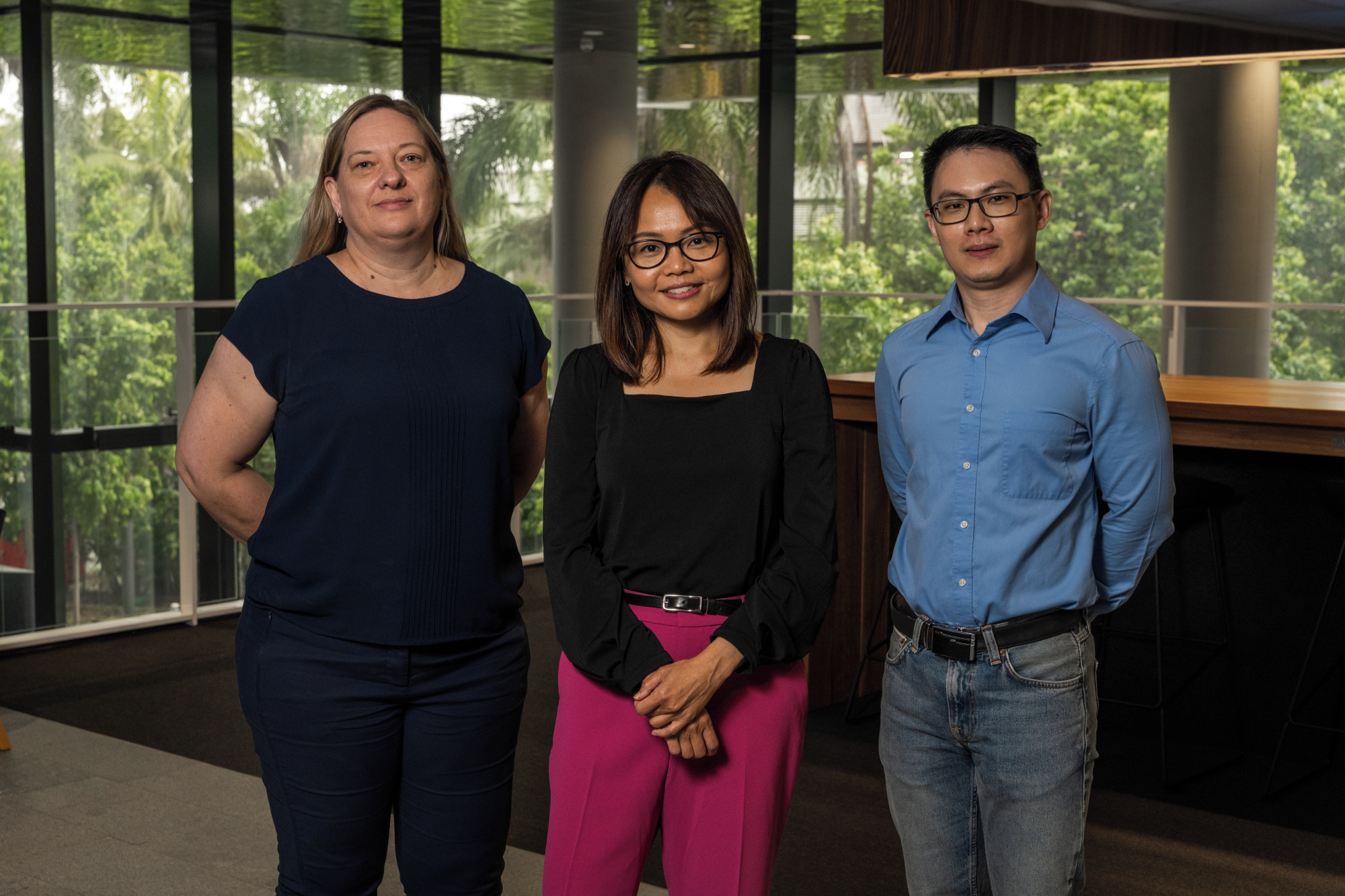
An interdisciplinary team has received a grant of $501,180 to create A biologically responsive and anatomically authentic human nasal model.
Led by Professor Yi-Chin Toh, this project aims to develop a world-first human nasal model to mimic both anatomical and biological aspects of the nasal cavity and predict the distribution and deposition of fine particles and the resultant biological response from the nasal mucosa.
“This project will combine expertise in 3D printing, tissue engineering and microfluidic technologies to design and fabricate a next-generation human nasal model to evaluate physical and biological behaviour of intra-nasal therapies,” Professor Toh said.
The research team comprises Professor Toh and Dr Louis Ong and Professor Kirsten Spann from QUT, Professor Rosanne Guijt (Deakin University), Associate Professor Kiao Inthavong (RMIT), Professor Gregory Nordin (Brigham Young University, US); and, Dr Abigail Walker (RBWH Hospital and Health Service District).
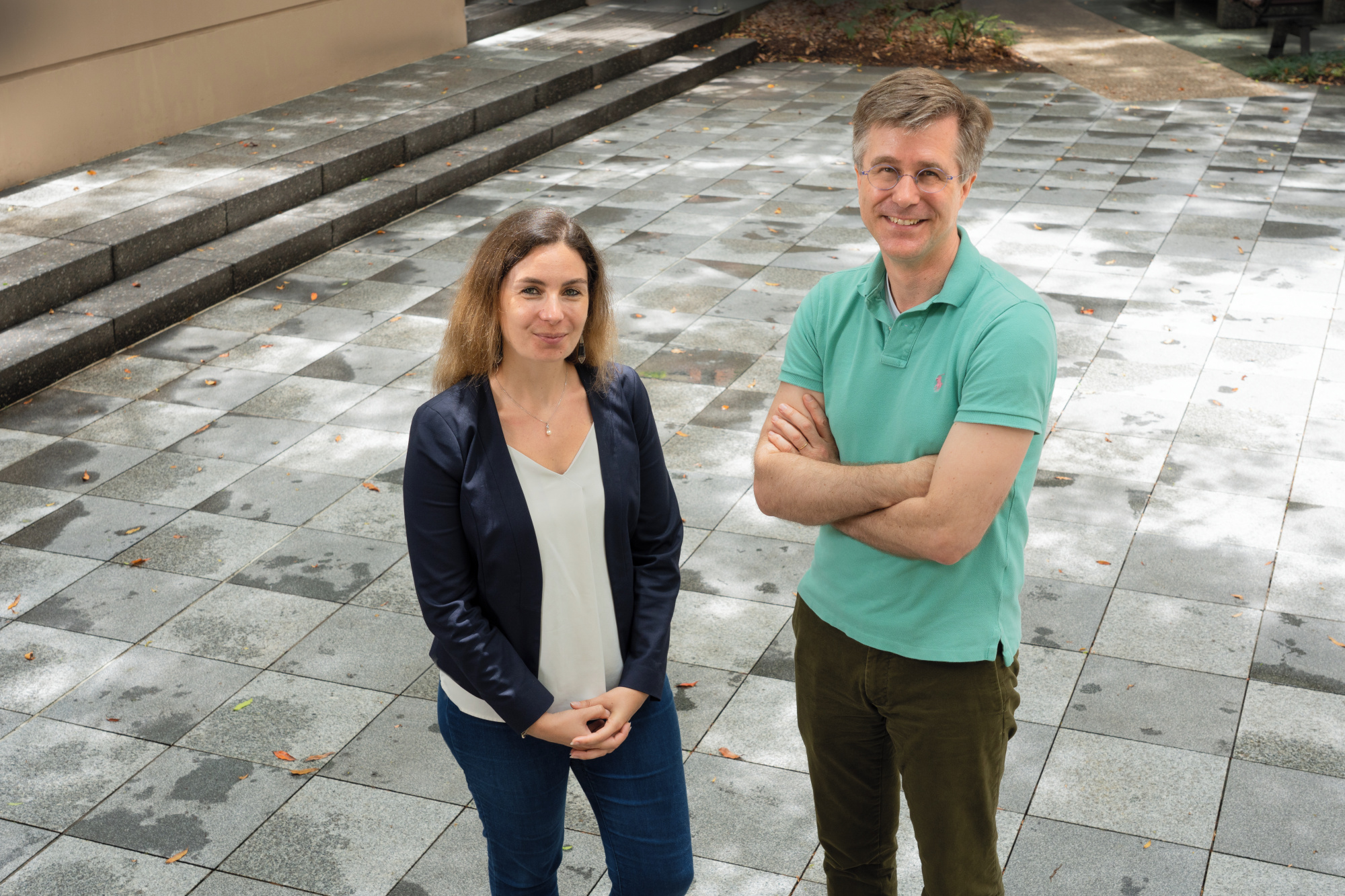
QUT Centre for Materials Science researchers have received $332,000 for the project Microspheres from (sun)light – a sustainable materials platform.
The project, involving ARC Laureate Fellow Distinguished Professor Christopher Barner-Kowollik and Dr Laura Delafresnaye, will use light (sunlight) to produce polymer particles without the use of any additives or heating to initiate the process.
Professor Barner-Kowollik said the project would scale up particle synthesis production using Australian sunlight, that would enable a wide range of real-world applications.
“Australia is one of the sunniest countries in the world, and developed a method of producing polymer particles, that have a wide range of applications, could be a key contribution to an advanced sustainable economy,” Professor Barner-Kowollik said.
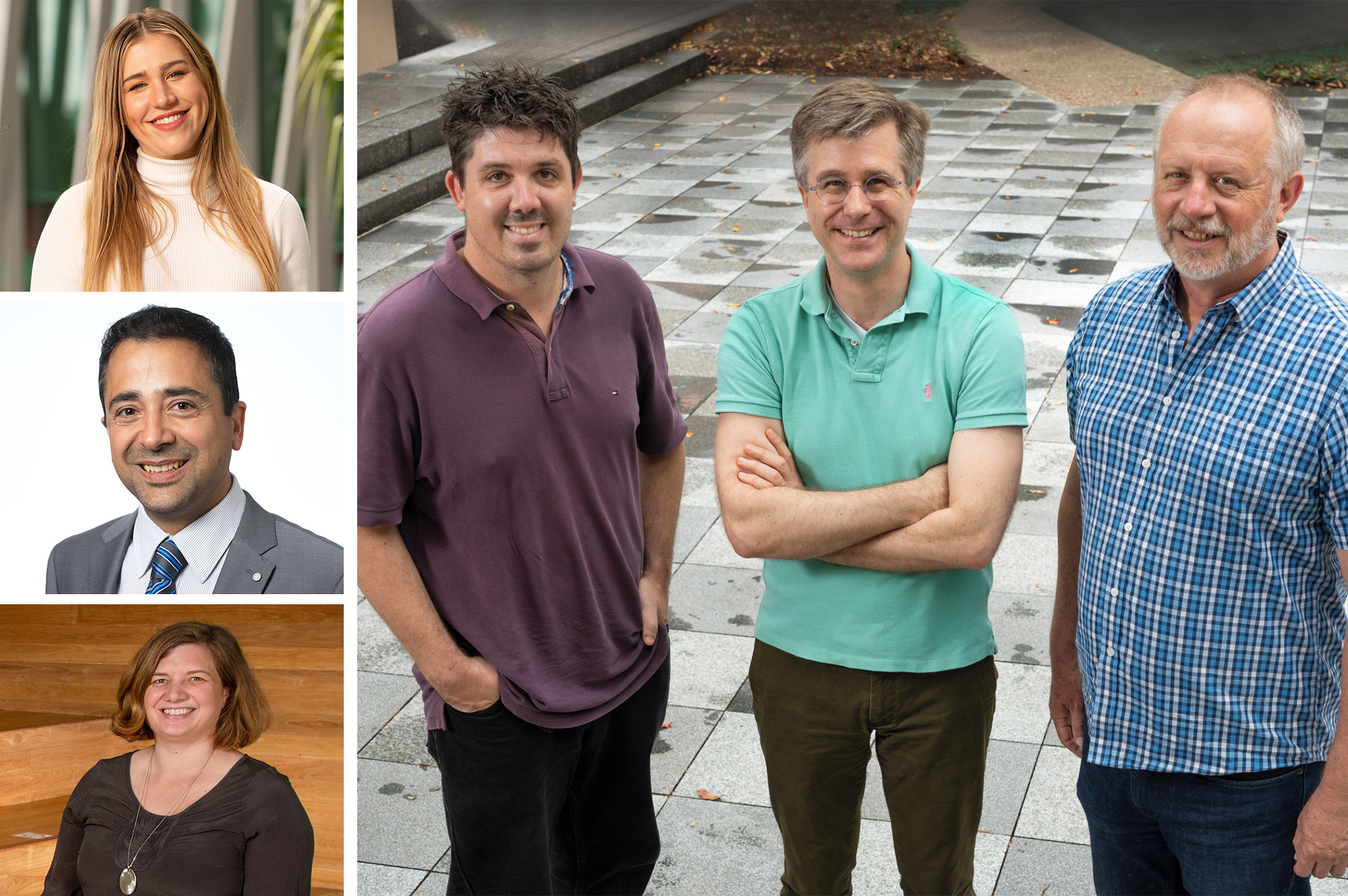
A transdisciplinary team of researchers from QUT’s Centre for Materials Science, Centre for Justice and Centre for a Waste Free World has received $454,802 for the project Sequence-defined polymers with optical information readout.
The project, led by ARC Laureate Fellow Professor Christopher Barner-Kowollik and Dr Hope Johnson, will fuse chemistry, law, and criminology to develop the technology in ways that are expected to address illicit plastic waste trafficking by tracing the pollution back to the source.
Dr Johnson said the project aimed to end the anonymity of environmental waste by creating a regulatory and criminological paradigm for tracing plastic waste to hold actors in the value chain responsible.
Professor Barner-Kowollik said this was a challenge that extended beyond traditional disciplines and research boundaries.
“There needs to be a multipronged approach in tackling this problem – we need to develop coding for each batch of plastic to enable the identification of the source, and then have a system of legal enforcement,” Professor Barner-Kowollik said.
The research team comprises Dr Hope Johnson, Associate Professor James Blinco, Professor Afshin Akhtar-Khavari, Associate Professor Mark Lauchs, Dr Anja Goldmann and ARC Laureate Fellow Professor Christopher Barner-Kowollik.
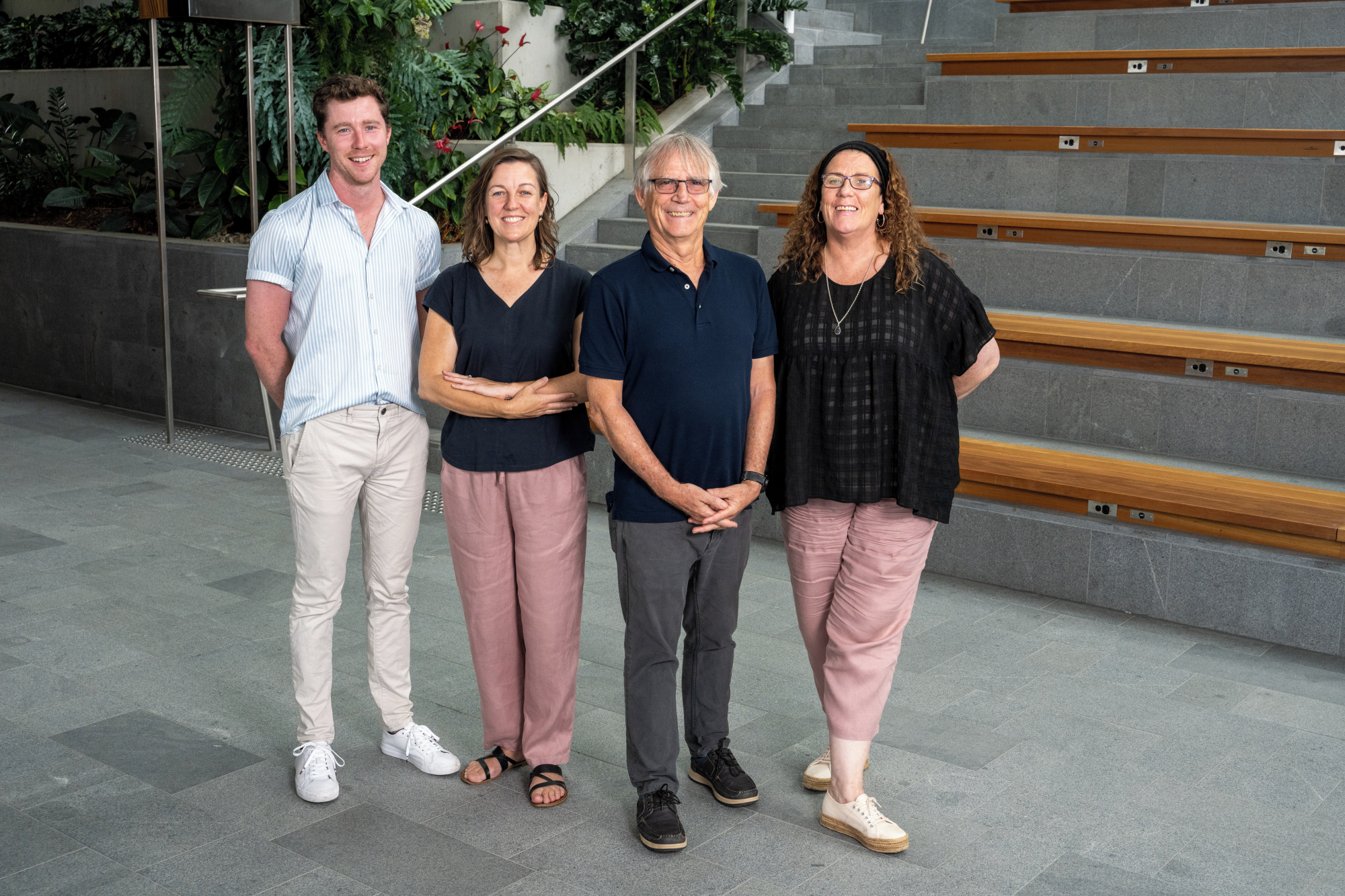
Dr Reece Mills, Dr Lisa van Leent, Professor Martin Mills and Associate Professor Theresa Bourke
A team of education researchers from QUT's Teachers and Teaching Research Group has received $353,950 for the project Teacher attraction and retention in hard-to-staff schools.
The project, led by Professor Martin Mills, addresses Australia’s teacher shortage crisis and many schools increasingly ‘hard-to-staff’ due to a lack of, or high turnover of, teachers.
Professor Mills said rural and remote schools face significant challenges, as do schools in high poverty communities. The team will focus on early career teachers and the relationship to social justice in affected regions.
“It’s important to recognise schools are not just places of learning but also workplaces. We hope to produce results on how best to attract and retain teachers, which will benefit the teaching profession, students, and the broader community in Australia and overseas,” Professor Mills said.
The team comprises QUT researchers Professor Mills, Associate Professor Theresa Bourke, Dr Lisa van Leent (Centre for Justice), Dr Reece Mills and Professor Simone White (RMIT).
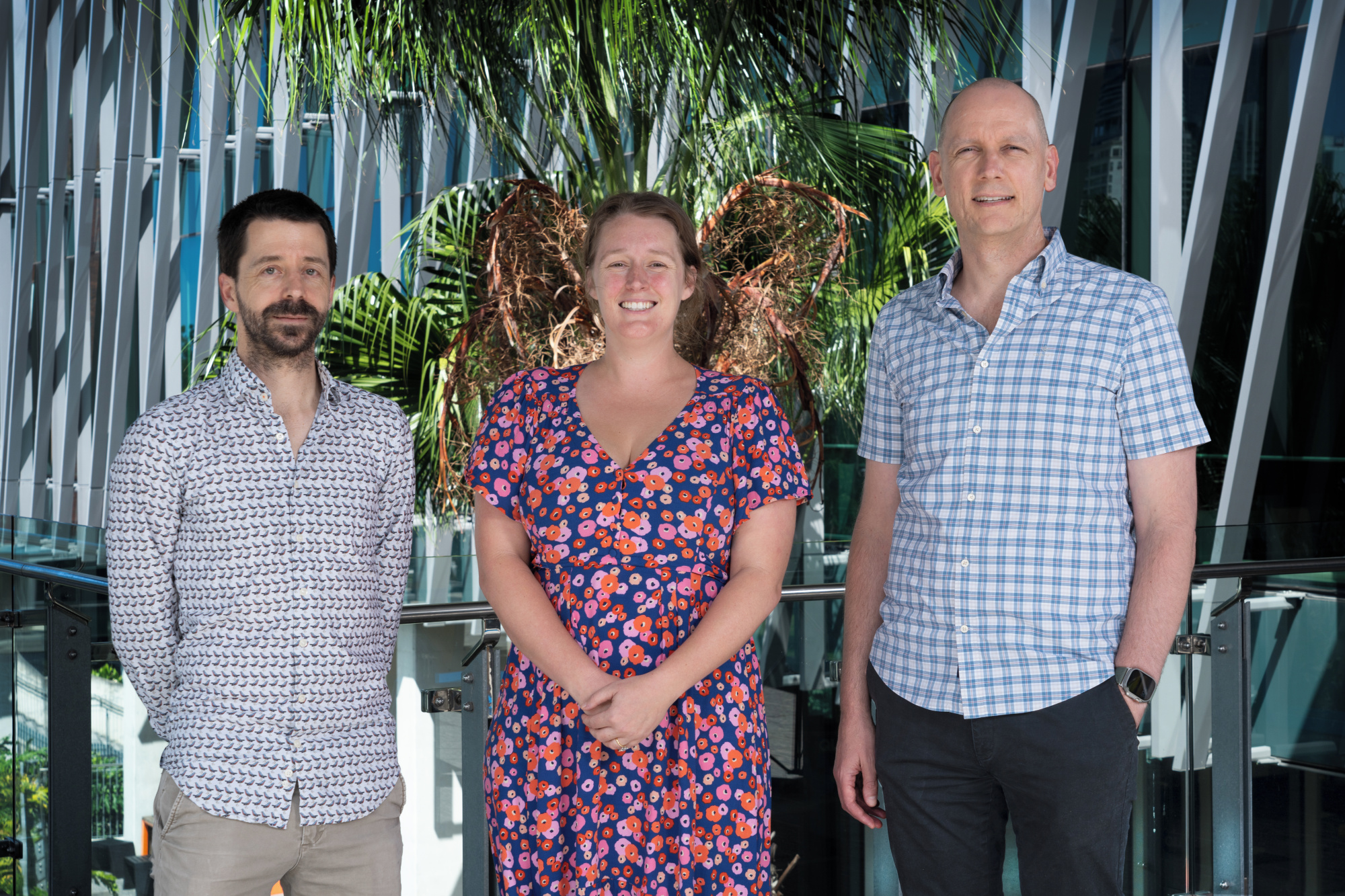
An international team, involving QUT and Oxford University researchers, has received $586,000 for the project New mathematical approaches to learn the equations of life from noisy data.
The project, led by Professor Matthew Simpson, will develop mathematical models to improve our understanding of cell biology.
Professor Simpson said new mathematical models and mathematical modelling methods needed to be continually developed to interpret emerging biotechnology experiments.
“Contemporary research in tissue engineering involves growing tissues on 3D-printed scaffolds,” Professor Simpson said.
“This project aims to deliver and deploy high mathematical models to predict new experiments and enable a reproducible design.”
The research team comprises QUT researchers Professor Simpson, Dr Adrianne Jenner, Dr Pascal Buenzli, and Professor Ruth Baker (University of Oxford).
Media contact:
Rod Chester, QUT Media, 07 3138 9449, rod.chester@qut.edu.au
After hours: 0407 585 901, media@qut.edu.au




